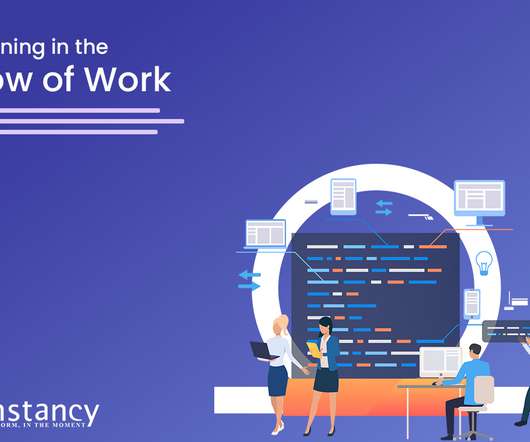Re-imagining Work & Learning in a Networked World
ID Reflections
DECEMBER 28, 2014
Will we still continue to speak about learning as an activity to be undertaken in order to be effective at work? Or will work itself subsume learning enabled by a transformed L&D / facilitators / coaches / mentors and the "right" organizational culture?
































Let's personalize your content